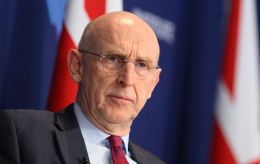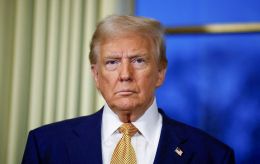Israel enters Gaza: How the world reacts to operation against Hamas
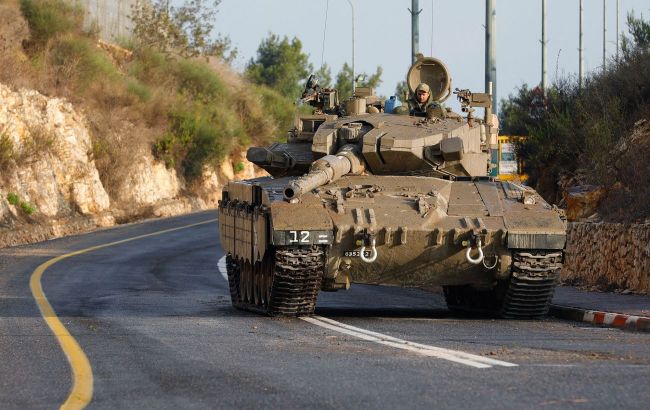 The Israel Defense Forces entered the Gaza Strip on tanks (Photo: Getty Images)
The Israel Defense Forces entered the Gaza Strip on tanks (Photo: Getty Images)
Three weeks after the attack by HAMAS terrorists, the Israeli army initiated a ground operation in the Gaza Strip. Western countries saw a wave of actions in support of Palestine, and events in Dagestan (Russian Federation) nearly led to a riot. In this overview by RBC-Ukraine, we will discuss the new hotspot, its impact on the global situation, and the potential consequences of shifting the focus to the Middle East.
The material was prepared using publications by The Times of Israel, Axios, CNN, The Wall Street Journal, The New York Times, Bloomberg, NBC News, analysis by the Institute for the Study of War (ISW), statements from officials of the USA, Israel, and Ukraine, as well as exclusive comments from political analyst Volodymyr Fesenko.
The ground phase of the military operations in the Gaza Strip was expected from the first days of the HAMAS attack, which resulted in the deaths of at least 1,400 Israelis. However, it was postponed for several reasons. According to the Chief of the General Staff of the Israel Defense Forces (IDF), Herzi Halevi, for strategic reasons - to weaken the terrorists, better prepare, and conduct the operation with a minimum of casualties among Israeli soldiers and Palestinian civilians.
Western media reported that Prime Minister Benjamin Netanyahu delayed the ground operation, considering various proposals. In addition, he was allegedly under pressure from the administration of U.S. President Joe Biden to give more time for the evacuation of civilians and over 500 American citizens stranded in the Gaza Strip. Officially, Biden confirmed the request to refrain from a military option if there was a safe way to release hostages. He denied pressuring Netanyahu and assured that the final decision was up to Israel.
Sources of The Wall Street Journal reported that the U.S. rapidly deployed missile defense systems to protect its forces in the Middle East, and Israel agreed to postpone the operation until the end of last week. On Saturday morning, October 28, there were reports of the IDF tanks entering Gaza. However, it turned out that small incursions, including on armored vehicles, had been taking place for several days.

Chief of the General Staff of the IDF, Herzl Halevi, with soldiers of the Israel Defense Forces (Photo: twitter.com/IDF)
After this, Defense Minister Yoav Gallant announced a new phase of Operation Iron Swords (in response to HAMAS's Al-Aqsa Flood - a formal declaration of war on Israel), with attacks on the ground and underground to completely destroy the terrorists. Netanyahu outlined its main goals.
Gallant stated that the objective was clear - the elimination of Hamas by destroying its military and administrative capabilities and returning hostages.
According to The New York Times, Israel, in agreement with the United States, has likely opted for a phased deployment of troops inside the Gaza Strip rather than a full-scale invasion. According to geolocated footage, the IDF advanced three kilometers into the northern part of the sector. Tanks entered the area of Zeitoun, in the southern part of Gaza, and cut off the Salah al-Din road, a key route spanning the entire sector from the Rafah border crossing with Egypt to Erez on the border with Israel.
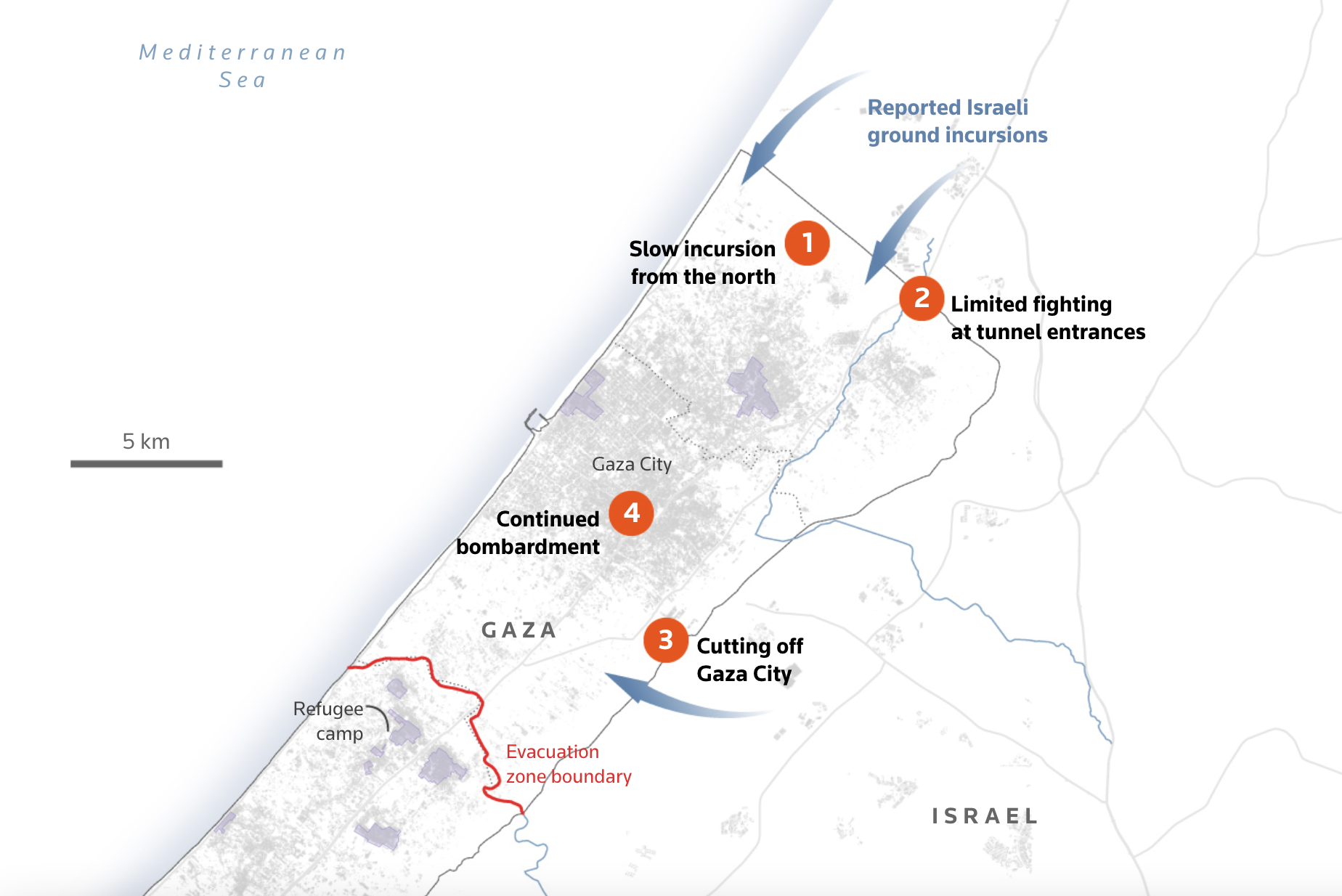
The Israel Defense Forces entered the Gaza Strip with tanks (Reuters map)
Ground operations by Israeli forces continue in Judea and Samaria (the West Bank), and there is unrest on the northern borders of Israel. Hamas continues to launch rocket attacks from Gaza, while the IDF targets hundreds of the assets and positions of Hezbollah militants in Lebanon and military facilities in Syria, from which attacks are also launched on Israeli territory.
The start of the ground campaign followed another breakdown in humanitarian negotiations. Hamas demanded fuel, and the United States and Israel sought guarantees for the release of hostages, including citizens from around 25 countries. Optimism persisted until Friday, but the disagreements that arose led to a deadlock.
In addition to the 1,400 casualties in the first days following the Hamas attack, Israel reports over 300 military casualties and about 239 hostages held by militants. The Gaza Ministry of Health (naturally under Hamas control) claims over 8,300 casualties and more than 21,000 injured since the start of the conflict. As of yesterday, the Israel Defense Forces have been increasing their ground forces in Gaza and expanding the operation zone. According to Bloomberg, the operation could last anywhere from 6 weeks to 6 months.
Simultaneously, various countries are witnessing a surge in anti-Israel sentiments. Large protests in support of Palestine have taken place in the streets of London, Paris, and Berlin, and a near-riot situation occurred in Makhachkala (Dagestan, Russian Federation).
Hysteria in Russia and riot in Makhachkala
The Russian reaction to the Hamas attack leaves no doubt about whose side the Kremlin is on in the new war. Russia refused to publicly condemn the terrorist acts, voted against a UN Security Council resolution condemning the Hamas attack, and voted against a corresponding amendment in the General Assembly.
State media refers to Gaza representatives as radicals rather than terrorists and criticizes Israel's actions in response. Anti-Israel sentiments on social media and Telegram channels are even higher. Militants approved Vladimir Putin's position, and Moscow hosted a Hamas delegation last week. Russian society, in turn, has identified a new enemy, especially in the Muslim republics of the North Caucasus.
Initially, in Cherkessk (Karachay-Cherkessia), they demanded the eviction of all Jews, a partially constructed Jewish cultural center was burned in Nalchik (Kabardino-Balkaria), and in Khasavyurt (Dagestan), they went to local hotels to "evict Jews," even though there were none there. On Sunday, anti-Israel hysteria reached its peak in Makhachkala.
Hundreds of people stormed the local airport in search of a plane arriving from Israel. Prior to this, the Telegram channel Utro Dagestana (Morning of Dagestan) spread rumors about plans to resettle Israeli refugees in Dagestan and other North Caucasus regions. The crowd blocked the airport exit, checked documents, and chanted "Death to Jews." Clashes occurred with security service personnel and law enforcement officers. The muftis issued a statement that anti-Semitism has no place in the North Caucasus, and within hours, the Russian National Guard dispersed the demonstrators, detaining dozens of individuals. Many Russian opposition figures noted that this time, people in uniform acted extremely passively, unlike their usual behavior in anti-Putin or anti-war protests.
According to some reports, one police officer died as a result of the clashes. The rioters did not find a single Israeli citizen they were expecting to target, and an ethnic Uzbek barely escaped the mob.
The Kremlin did not respond promptly to the unrest, probably relying on regional authorities. The heads of Dagestan, Karachay-Cherkessia, and Kabardino-Balkaria limited themselves to calls to refrain from stirring up interethnic hostility. The representative of the chief rabbinate of Russia in Dagestan urged Jewish families to leave the republic due to the threat of violence.
Analysts from the American Institute for the Study of War have concluded that the events on Sunday undermine Putin's efforts to portray Russia as a religiously tolerant country. Just a few days ago, he declared "harmonious development of interethnic relations," including "based on understanding" among people of different faiths during a meeting with Jewish and Muslim leaders.
The Russian Ministry of Foreign Affairs has accused Ukraine of involvement in the incident. According to the Russian version, individuals connected to Russian opposition figure Ilya Ponomarev are supposedly being harbored in Ukraine by the Utro Dagestana channel. The channel's administrators, the opposition figure himself, and the official authorities in Kyiv deny these allegations.
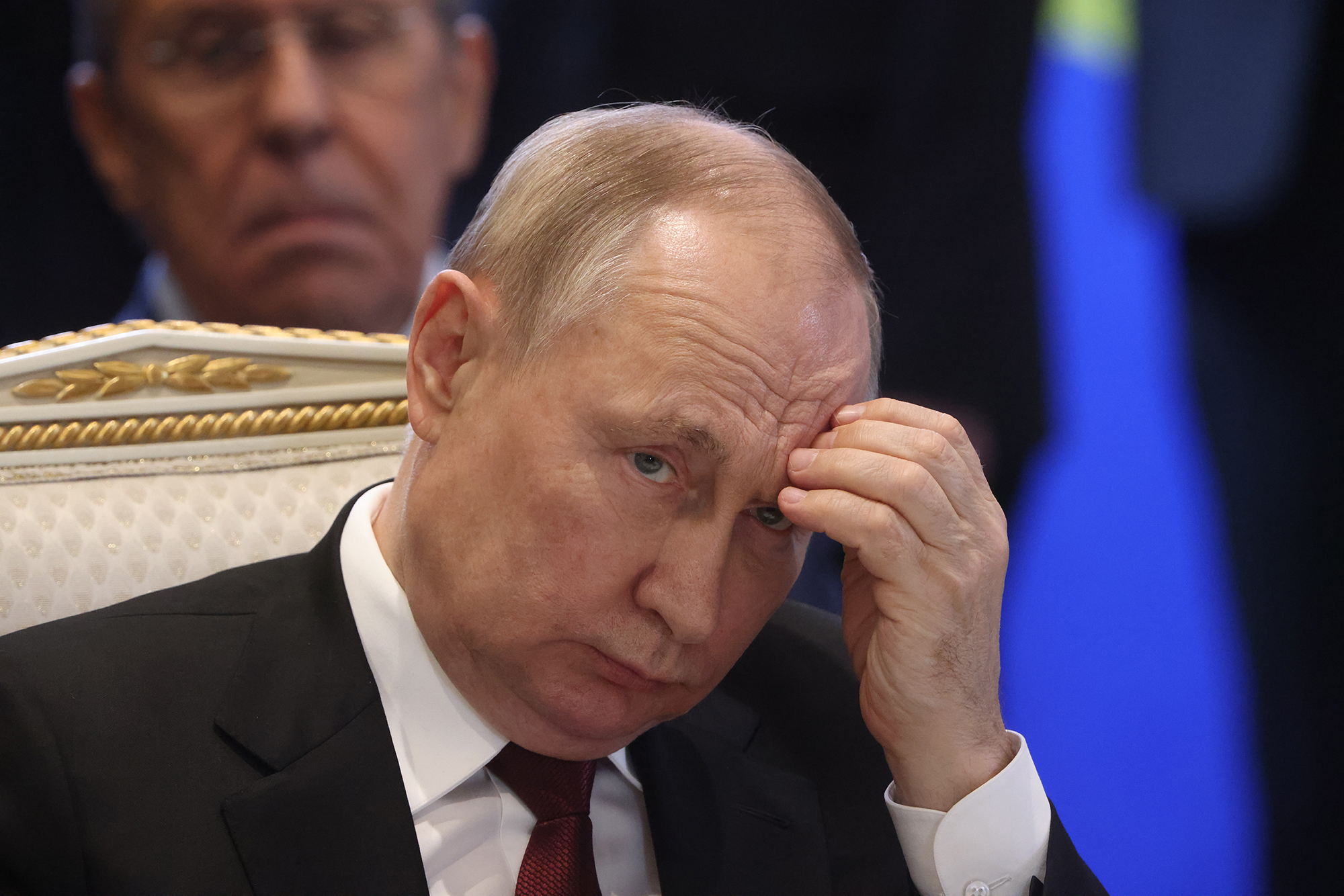
Western analysts see the events in Makhachkala as a failure in Vladimir Putin's attempt to depict Russia as a tolerant country (Photo: Getty Images)
The Ukrainian Ministry of Foreign Affairs has called Russia's statements an attempt to shift responsibility from the sick head to the healthy one. Secretary of the National Security and Defense Council, Oleksiy Danilov, spoke about the beginning of Black Hundreds-style pogroms in Russia, while President Volodymyr Zelenskyy referred to the events as part of the widespread culture of hatred toward other nations in Russia.
"Russian anti-Semitism and hatred toward other nations are systemic and deeply ingrained. Hatred is what incites aggression and terror," he added.
What happened in Makhachkala was most likely a spontaneous event, but not entirely coincidental. It is a consequence of the aggressive state of Russian society, fueled by the war against Ukraine. It had manifested itself earlier during the June coup attempt by the Wagner private military company and in some other forms, according to political analyst Volodymyr Fesenko.
Dagestan is a potential hot spot. It is one of the poorest regions, ethnically diverse, with numerous social problems and a high level of Islamic radicalism. If Russian propaganda tried to use the Israel-Hamas conflict to direct aggression toward the West, then the radical Islamists of the North Caucasus, who harbor a "natural" anti-Semitism, made their intentions clear.
"Information about a plane supposedly carrying refugees from Israel emerged, and from that spark, a significant fire ignited. This is one element of a chain because the anti-Israel hysteria was present on Russian TV, albeit indirectly, sympathies for Hamas and critical views of Israel were not concealed. In various forms, anti-Semitism came from Putin and Lavrov, and it was especially evident on TV and Telegram channels. So, the groundwork for the spontaneous airport takeover and riot was there," Fesenko noted in a conversation with RBC-Ukraine.
He also notes that the current war in the Middle East has become just an external trigger for Dagestan.
"Continuation in Russia will possibly be in different forms and in different places. Because the aggression within society, which is currently more directed against Ukraine, will eventually lead to an explosion within Russia itself," emphasized the political analyst.
In his opinion, Russia's destabilization aligns with Ukraine's interests, although provoking a revolution from outside is impossible without internal preconditions. If the aforementioned Telegram channel had any influence on the events in Makhachkala, it was only minimal, as the necessary sentiments and aggression in Russia already exist," he added.
Erdogan plays the "Ottoman world"
Equally alarming news comes from Turkiye. Last week, President Recep Tayyip Erdogan called Hamas militants "liberators" and their actions "logical." He accused Israel of atrocities in the Gaza Strip. It was also revealed that joint energy projects, especially regarding the exploration of deposits in the Mediterranean Sea and gas exports to Europe, have been suspended.
Later in Istanbul, a million-and-a-half-strong rally was held in support of Palestine, during which Erdogan announced the cancellation of his visit to Israel, calling the country an "occupier and war criminal" and referring to Hamas as "brothers." He also mentioned that the Ottoman Empire once ruled Palestine and blamed the West for the escalation. In response, Israel recalled its diplomats.
"Hey West, I ask you, do you want to reignite the war between the crescent and the cross?" Erdogan inquired, adding that the West would sacrifice Israel as a pawn in a chess game eventually.
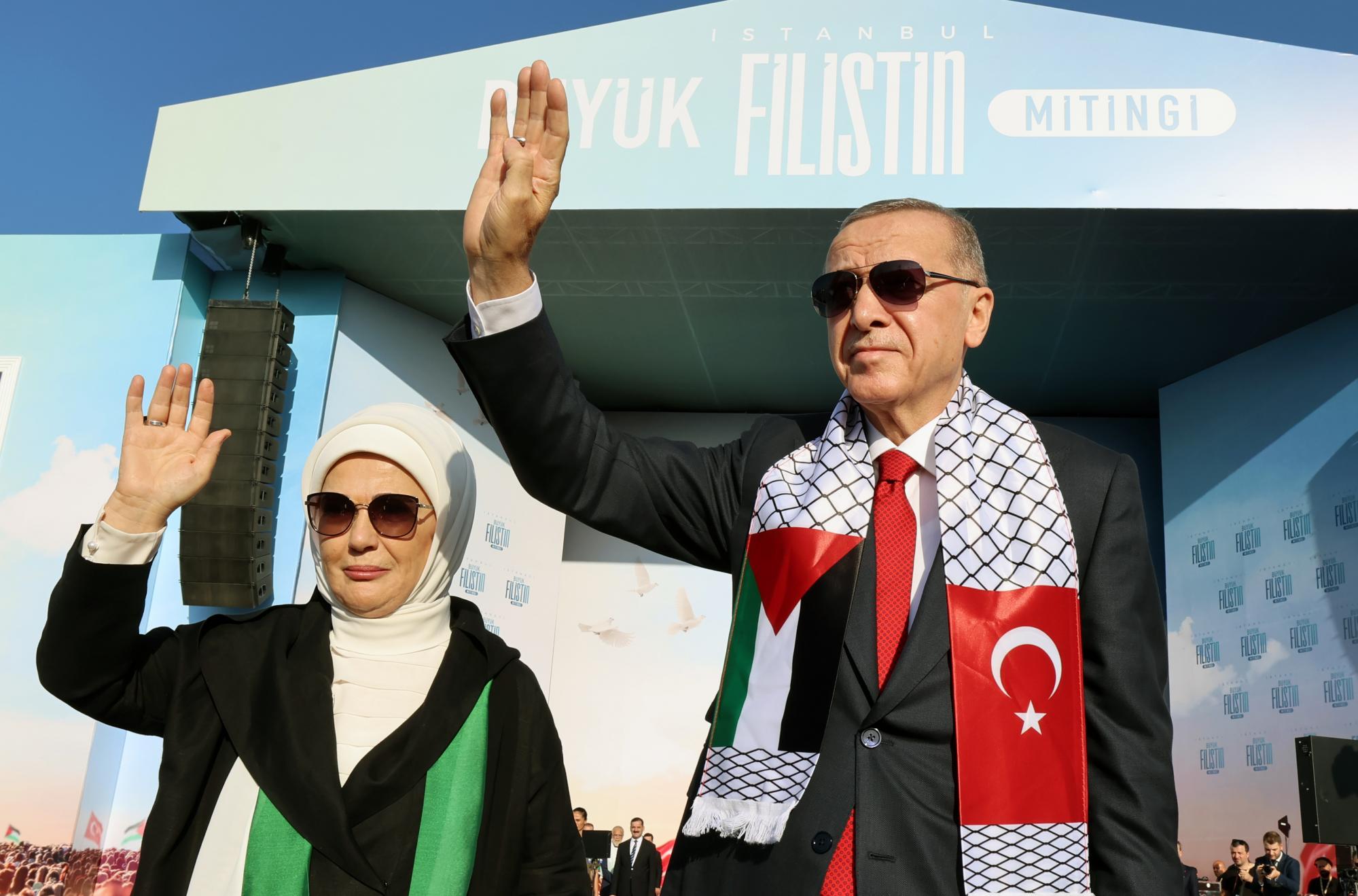
Recep Tayyip Erdogan made anti-Israel statements during a rally in Istanbul (Photo: twitter.com/RTErdogan)
It's worth noting that such rallies are Erdogan's favorite way of communicating with his electorate, which actually works. However, these speeches are usually directed solely at the domestic audience, so it's unlikely that his passionate speeches should be perceived as a threat of war with the West or Israel. In this case, it's a reaction to the events in Gaza that have angered the Islamic world, which sympathizes with the Palestinians.
"Erdogan decided to use the situation, talking about the cross and the crescent, reminding people of the times of the Crusades, the confrontation between the West and the Muslim world, which is part of anti-Western rhetoric. Erdogan has hinted that he aspires to be a leader of the divided Muslim world. Will this work? I'm not sure, but he's making a claim. Erdogan's game doesn't mean that he will engage in a fight with Israel, the U.S., and the West; there are no signs of preparations for that. And he's not foolish enough to do things that go against Turkiye's interests," says Volodymyr Fesenko.
He also compared Erdogan's mention of Palestine as part of the Ottoman Empire with Putin's "Russian world" idea. Essentially, the Turkish President claims the right to influence the region based on historical connections.
"But in reality, it's much simpler. For example, oil flows to Israel from Azerbaijan through Turkiye. If Erdogan is determined, he probably should cut off the supplies. We haven't seen that yet. His words are full of pathos, but politically Erdogan will continue to act cautiously, like most Arab countries," explained the political analyst.
The biggest danger for Israel is associated with Iran because neighboring Arab countries have no intention of going to war, unlike what was happening 50-70 years ago, he believes.
Increasing sympathy for Palestinians in Europe. What is the danger?
The reaction to the escalation between Israel and Palestine in European countries has been mixed. In many capitals, there were large-scale rallies in support of Palestinians. In London, around 100,000 people participated in a protest, and the event proceeded without incident.
In Germany, the most resonant protests occurred in the Berlin district Neukölln, where predominantly Turkish and Arab immigrants reside. Nearly two hundred people were detained as a result of clashes. Antisemitic acts were also recorded, from marking Jewish houses with the Star of David to an attack on a synagogue with a Molotov cocktail.
Mass demonstrations also took place on the streets of Paris. These events were not without antisemitic slogans and clashes with the police, but one of the recent rallies with thousands of participants proceeded rather peacefully. In Warsaw, there were calls to "stop the genocide," and slogans like "to a free Palestine from the river to the sea" were observed. In Sarajevo, government representatives participated in protests against the Israeli operation.
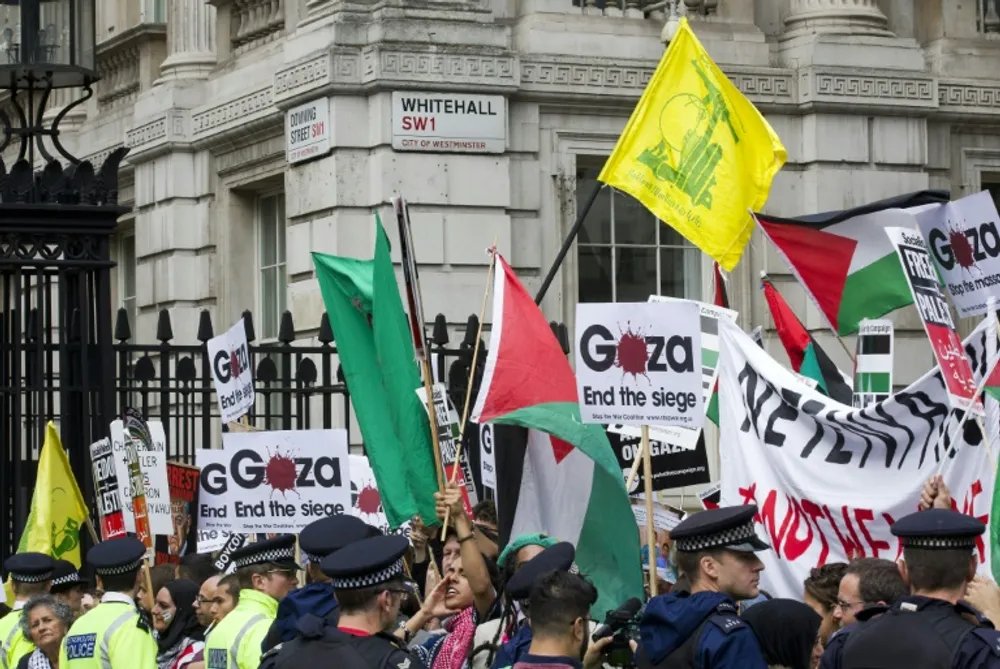
Action in London in support of Palestine (Photo: twitter.com/ImtiazMadmood)
It is evident that the situation in the Middle East is gradually dividing Europe. While there was more sympathy for Israel after October 7, the prevailing sentiment now is sympathy for Palestinians. Political analyst Volodymyr Fesenko sees three threats in this.
The first is a surge in anti-Israel sentiments in the Islamic world, some of which Israel hasn't encountered since the 1973 Yom Kippur War, which was accompanied by an energy war of Arab countries against the West. Currently, Hamas aims to incite Muslims worldwide against Israel, and to some extent, it has been successful.
The second threat relates to the strengthening of anti-Western sentiments in Global South countries. This has already been evident in the breakdown of the meeting between Joe Biden and Arab leaders, and overall, relations between the Global South and the West have become colder. Countries from Latin America to Asia perceive unquestioning Western support for Israel as disrespect toward Palestinians and their people.
The third threat is the differences among Western countries, as seen in the voting for the controversial UN General Assembly resolution on a ceasefire in the Gaza Strip. Fourteen countries voted against it, including the United States, and most of Washington's allies did not support its position and abstained, including Ukraine.
"For us, this is the right and balanced position. We cannot rush into extremes because that would only lead to our loss. Our support for the resolution would not bring any political benefits. It wouldn't change the attitude of Trumpist Republicans or, unfortunately, Israel's official position regarding Ukraine. The main thing is that we cannot go into conflict with Global South countries, and this was related to the meeting on the 'peace formula' in Malta, and, in general, the resolution does not condemn Hamas. It is wrong to demand only a ceasefire; we need to insist on the release of hostages and the punishment of terrorists," explains Fesenko.
According to him, the contradictions in the West may not be fatal, but they are serious and certainly have a significant impact on the international situation. According to another interviewee, it is also essential for the Ukrainian government not to underestimate the level of Palestinian support worldwide. Contrary to the stereotype often held in Ukraine, it is not just ultra-left radicals and similar groups advocating for them.
Can international reaction influence Israel's actions?
Sharp statements from Turkiye, Arab countries, the positions of the West, and Russia may have given the impression that they delayed the ground phase in Gaza. However, this is far from a decisive factor. For example, Israel and Turkiye have long had specific relations. In the past, Turkish ships with weapons for Palestinian radicals were detained in the Mediterranean, but even then, relations remained pragmatic. So, Erdogan's strong rhetoric is unlikely to influence Israel's plans in Gaza, especially given Russia's cynical behavior toward the Jewish state.
To a larger extent, the format of the ground operation is determined by U.S. restraint and internal factors, including the release of hostages. According to a source familiar with the situation on the ground, the demand for decisive action in Gaza still dominates in Israeli society. "If the authorities can 'sell' a low-invasion operation to society, that's one thing. If not, there may be an open second front, and the escalation will reach a new level," the source said.
In any case, there is an understanding that the anti-Israel wave in the world may become even stronger. Therefore, Israel did not rush and thoroughly prepared to minimize its losses and the losses among civilians.
"It is likely not going to be a total revenge with punishment for everyone. The IDF will act cautiously, dividing Gaza into separate sectors, cutting off the north and south, and destroying tunnels and Hamas' underground infrastructure. I would call it a surgical cleanup, done slowly to inflict maximum damage on the terrorists," said Fesenko in a conversation with RBC-Ukraine.
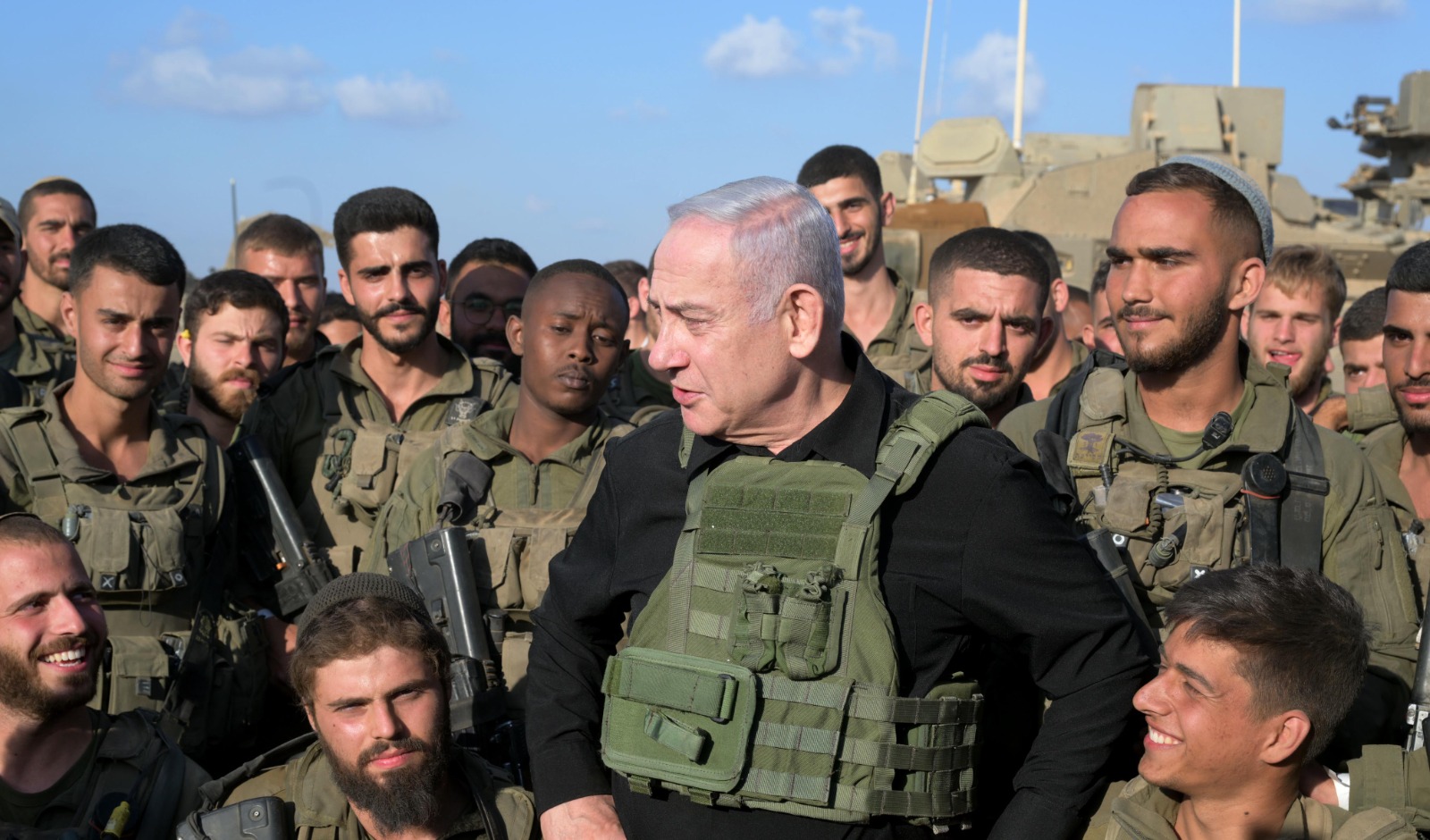
Thorough preparation had delayed the ground operation in Gaza for some time (Photo: twitter.com/IDF)
If Netanyahu and other Israeli leaders had some agreements with Hamas, there are no longer any talks of peaceful negotiations after October 7. Perhaps through intermediaries, discussions about hostage release and temporary ceasefires may take place, but the strategic goal will remain the same – the physical destruction of those who planned and carried out the attack.
"Israel will act in much the same way the U.S. did against Al-Qaeda and the Islamic State. Everyone understands that it is possible to destroy Hamas, but what's next? The Americans first destroyed Al-Qaeda, then ISIS, but radical Islamism didn't disappear. The problem is that even after the operation in Gaza, other radicals may emerge," he added.
***
The new conflict has shifted the focus of information from the Russian-Ukrainian war to Israel and the Gaza Strip. This trend has been developing for some time and is partly related to Western fatigue, which also sees the risk of the fire spreading in the Middle East. The only solution is for Ukraine to adapt and do everything to ensure that our partners do not forget about our war.
Politically, Ukraine remains one of the main priorities, and this is evident in concrete actions. Joe Biden, in his recent address to the American nation, touched on the Ukrainian issue along with Israel, and the White House has planned over $60 billion in aid for our country, compared to $14 billion for Israel. Europe, of course, is closely watching the Middle East region due to the presence of Muslim communities in its countries. However, the war in Ukraine is closer both geographically and politically, and the question of EU accession negotiations is currently being decided between Brussels and Kyiv.
There may be a challenge related to military resources. Previously, Ukraine received American ammunition, including from Israeli warehouses, and now Israel itself will need them. In the context of our army's chronic shortage, this news is causing real concern.
"Now the West is forced to deal not only with Ukraine but also with Israel and Palestine, which diverts attention from us. However, it cannot close the Ukrainian issue, and I think we will remain a top priority for quite some time. The Russian-Ukrainian war remains the biggest threat to international security. And what's happening in the Middle East, in various forms, we have seen many times. And I'm afraid we haven't seen the last of it," Volodymyr Fesenko concluded.
